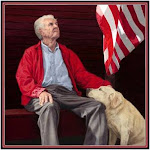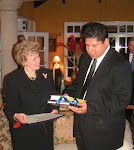By Jim Pettit
There is nothing new about a president having different opinions with his generals during war, yet how the commander-in-chief addresses these issues openly tests his character and determines a place in history like no other matter. President Obama’s problem with Gen. Stanley McChrystal is all style, not substance. And it’s the president himself who created the very problem that the White House is now complaining about. Obama has stumbled badly on this.
The administration has not answered the call from McChrystal, the top U.S. and NATO commander in Afghanistan, who very publicly called for an increase of 40,000 troops. McChrystal is directly responsible for these soldiers’ lives, more so than the president, the Secretary of Defense and the Chairman of the Joint Chiefs of Staff. With that burden comes an obligation the rest of us can only imagine.
As a candidate, Obama campaigned on refocusing the war from Iraq to Afghanistan, and as president, he removed the last commander replacing him with McChrystal after having called for a new strategy. Since the president does not yet know how to address the substance of the general’s blueprint for victory, administration officials are denouncing the style in which his recommendations are made. Just today, the administration let it be known that McChrystal need not attend a high-level strategy briefing on Afghanistan, the latest petty maneuver of an orchestrated campaign to marginalize him.
The administration is trying to change the subject to a debate about the military chain of command protocol by saying McChrystal is out of line to get through the next several press cycles. To buy time after that, the administration is going to great lengths to portray a systematic, deliberative decision making process where troop levels is just one among a range of options for going forward in Afghanistan. Picking up on this, Sen. John McCain told the president following McChrystal’s remarks that deciding troop levels should not be conducted at a “leisurely pace.”
According to press reports, unnamed White House advisers were "shocked and angered" by the bluntness of McChrystal's London speech in which he outlined a solution for winning the war. On the Sunday talk shows, Defense Secretary Robert Gates and National Security Advisor James Jones were dispatched to say, in essence, that military advice should be kept private.
When asked by a reporter whether the president is pushing the general aside if he doesn’t listen to advice about increasing troop levels, here is what Press Secretary Robert Gibbs said on October 6:
“I'm not going to get into hypotheticals. I appreciate that you fast-forwarded through the decision-making process. But we're going to focus on that process and getting it right. I'm just not going to get into hypotheticals.”
This situation is not hypothetical. The general stated what he thinks the key to victory is and the White House is dithering while casualties mount.
In the largest loss of U.S. soldiers in a single battle in more than a year, some 200 insurgents stormed an Army base comprised of some 140 American and Afghan forces near the Pakistan border. Eight U.S. soldiers were killed October 3. For months prior to this attack, this base was slated to be closed in the thinly populated area but wasn’t due to delays in getting helicopters in for an airlift. You’re either in or you’re not. Half measures are deadly, and that’s what the U.S. effort is right now.
When Winston Churchill appointed a new admiral of the navy to institute sweeping changes in the British fleet, he said at the time he wanted a “live wire.” Obama appears to have one in McChrystal, but he probably doesn’t know that because he spoke with his general just once since his promotion before these events unfolded.
Looking back at American history, it’s clear that presidents have a high threshold to reach to avoid the political and military fallout that comes from reducing the stature of battlefield commanders. First among presidents who had to deal with wartime generals is Abraham Lincoln, who was frustrated at the slow, wandering pace of the Civil War. Gen. George McClellan lectured the president on how to wage war with the South, yet failed to wage aggressive campaigns required for victory. He was subsequently fired.
Harry Truman sacked Gen. Douglas MacArthur for not following Administration policy on the Korean War. After Truman let him go, he later said it was because MacArthur didn’t respect the authority of the president. Respect for the authority of the president in this case meant not speechmaking, but provoking China which would have drastically widened the war.
Lecturing the general on his style of going public aboard Air Force One for a half hour in Copenhagen to sell Chicago to the Olympics committee does not inspire confidence. The Administration cannot focus on Afghanistan, health care and energy regulation, a last minute trip to see the Olympics committee and a host of other issues all at the same time. When everything is a priority, then nothing is. So for now, its politics as usual: attack the general in the press, exclude him from key meetings and change the subject.
In Obama, we don’t see any qualities even remotely resembling either Lincoln or Truman, who had to endure acute and sustained challenges with their generals on fundamental differences of policy. Lincoln and Truman fired their generals with substantive examples that justified their actions in the long run.
Obama knows he can’t fire McChrsytal – not yet anyway. The fallback approach is a cheap political effort to marginalize the general, and it comes at the added cost of the lives of U.S. troops. This is not leadership.







+-+Copy.jpg)



No comments:
Post a Comment